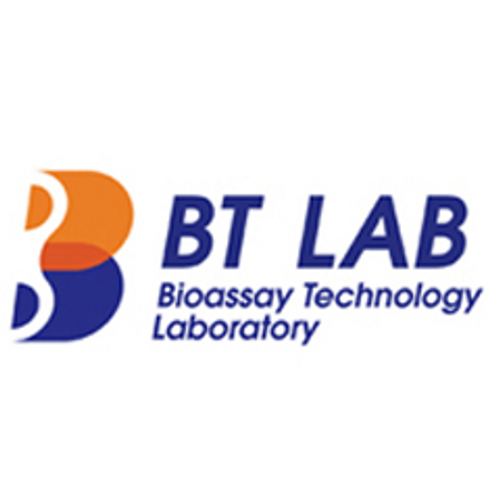Product Description
Rat Matrix metalloproteinase 13 (MMP-13) ELISA Kit | AE58330RA | Abebio
Species Reactivity: Rat (Rattus norvegicus)
Abbreviation: MMP13
Alternative Name: CLG3; MANDP1; collagenase 3|matrix metalloproteinase 13|matrix metalloproteinase 13 (collagenase 3)
Application: ELISA
Range: 0.156-10 ng/mL
Sensitivity: 0.064 ng/mL
Intra-Assay: ≤5.1%
Inter-Assay: ≤9.7%
Recovery: 1, 01
Sample Type: Serum, Plasma, Other biological fluids
Detection Method: Sandwich
Analysis Method : Quantitive
Test Principale: This assay employs a two-site sandwich ELISA to quantitate MMP13 in samples. An antibody specific for MMP13 has been pre-coated onto a microplate. Standards and samples are pipetted into the wells and anyMMP13 present is bound by the immobilized antibody. After removing any unbound substances, a biotin-conjugated antibody specific for MMP13 is added to the wells. After washing, Streptavidin conjugated Horseradish Peroxidase (HRP) is added to the wells. Following a wash to remove any unbound avidin-enzyme reagent, a substrate solution is added to the wells and color develops in proportion to the amount of MMP13 bound in the initial step. The color development is stopped and the intensity of the color is measured.
Product Overview: MMP-13 has been proposed to participate in aggrecan degradation associated with osteoarthritis and cleavage of type II collagen in osteoarthritic cartilage explants and in tumor progression and metastasis . In addition, it can cleave type I, III, IV, IX, X and XIV collagens and fibronectin. MMP-13 is likely to play a crucial role in the modulation of extracellular matrix degradation and cell-matrix interactions .MMP-13 is expressed by several metastatic tumors including breast carcinomas, chondrosarcomas, head and neck carcinomas, and in degenerative bone diseases including rheumatoid arthritis. Wild type and mutant p53, a tumor suppressor gene, differentially regulate MMP-13 gene expression . Members of the activator protein-1 and core-binding factor families increase MMP-13 promoter activity in normal, differentiating osteoblasts .
Stability: The stability of ELISA kit is determined by the loss rate of activity. The loss rate of this kit is less than 5% within the expiration date under appropriate storage condition. The loss rate was determined by accelerated thermal degradation test. Keep the kit at 37°C for 4 and 7 days, and compare O.D.values of the kit kept at 37°C with that of at recommended temperature. (referring from China Biological Products Standard, which was calculated by the Arrhenius equation. For ELISA kit, 4 days storage at 37°C can be considered as 6 months at 2 - 8°C, which means 7 days at 37°C equaling 12 months at 2 - 8°C) .
 Euro
Euro
 USD
USD
 British Pound
British Pound
 NULL
NULL








